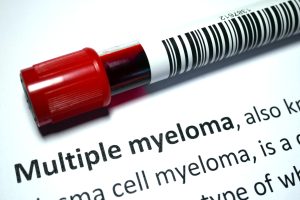
24 RCCA Physicians Named to 2025 Castle Connolly ‘Top Doctors’ List for Exceptional Cancer Care
A cancer diagnosis can be frightening. An individual may worry about how, or if, they will get better. The future becomes unclear and the strain
HIPAA Alert: Potential Data Breach Learn More
Questions on Oncology, Hematology and/or Infusion Clinical Services due to COVID-19 Crisis – CALL 833-698-1623
Important Information for Our Patients Regarding the Coronavirus.
RCCA Providing Area Cancer Patients with Access to Care During Coronavirus Outbreak
RCCA Offering Patients Virtual Visits During Coronavirus Pandemic
Esophageal cancer is cancer that begins in the cells that line the inside of the esophagus, and it can occur anywhere along the esophagus. A long, hollow tube that runs from your throat to your stomach, the esophagus transports the food you eat to the stomach to be digested.
For 2023, the American Cancer Society estimates that about 21,560 new esophageal cancer cases will be diagnosed in the U.S. (17,030 in men and 4,530 in women). The two most common types of this disease are:

Several factors can affect your risk of cancer of the esophagus. Some increase the risk for adenocarcinoma of the esophagus, and others make you more vulnerable to squamous cell carcinoma esophageal cancer.
Although there are no screening tests suggested for the general public, your doctor may recommend that you get screened if he or she feels you are at greater risk for developing esophageal cancer. If you have Barrett’s Esophagus, you should get routine upper endoscopy exams.
Having one or even several of the risk factors for developing esophageal cancer does not mean you will get the disease. But, if you or a family member have any risk factors, or if you think your risk for getting esophageal cancer is high, talk to your doctor about your screening options.
Even if you are in good health and feel your risk for getting this type of cancer is low, it’s imperative to be aware of the signs and symptoms, especially since regular screenings are only recommended for high-risk individuals. Be sure to report the following symptoms to your doctor if they begin for no apparent reason, and persist:

How advanced or contained the cancer is will play major a role in how your doctor treats it. Your RCCA team will help you learn about and carefully consider all your treatment options to achieve the best possible outcome. Some approaches commonly taken include:
The most advanced, effective therapies are vital to helping you win the battle against esophageal cancer, and you will find them at RCCA. Look deeper into the largest network of cancer care physicians in the nation, and you’ll find a profound dedication to crafting your care around your very individual needs. We want you to understand every aspect of your diagnosis, your treatment options and every benefit and risk, no matter how big or small. We are here to help you cope with treatment side effects, manage pain and support you after treatment. To find out how our experienced, dedicated team can make all the difference, call RCCA today.
For more information, or to schedule an appointment, call (844) 346-7222. You can also schedule an appointment by calling the RCCA location nearest you.

A cancer diagnosis can be frightening. An individual may worry about how, or if, they will get better. The future becomes unclear and the strain

Multiple myeloma (MM) is a rare type of blood cancer that often develops without early symptoms, making awareness of risk factors essential. Regional Cancer Care

A cancer diagnosis can bring a wide range of emotions, from fear and stress to sadness and hope. These feelings are a natural part of
When standard cancer treatments aren’t providing the results you want, clinical trials may offer hope. Our physicians use clinical trials to study new treatments, helping transform cancer care for the better. You can enroll in a clinical trial to try groundbreaking treatment plans at zero cost to you.

Regional Cancer Care Associates is one of fewer than 200 medical practices in the country selected to participate in the Oncology Care Model (OCM); a recent Medicare initiative aimed at improving care coordination and access to and quality of care for Medicare beneficiaries undergoing chemotherapy treatment.